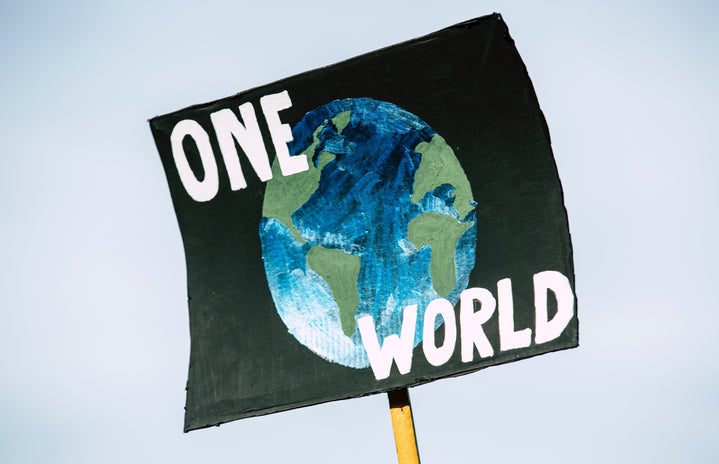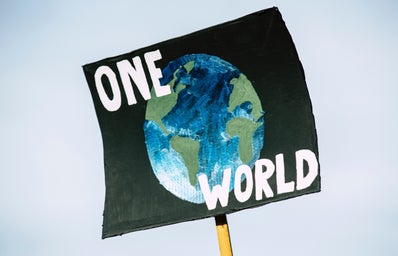Present-day media is flooded with information and encouragement to adopt various initiatives and lifestyle alterations in the name of sustainability. It almost seems like users cannot scroll through popular social media apps like TikTok, Instagram, Twitter, etc. without being reminded of the impact they as an individual may have on the environment. As scientists run calculations, predicting the climate change “point of no return” as being only about a decade away, the need for sustainability initiatives and eco-friendly living is rightfully at an all-time high. However, despite the endless efforts of environmental activists, politicians continue to leave environmentalism almost entirely up to the consumer’s discretion, making sustainability the responsibility of the individual.
This state of affairs opens the door to a dire flaw—like anything else, sustainability can become a privilege. As green living isn’t necessary to present-day survival, but rather an initiative to preserve the future of mankind, those of the lower class or below the poverty line are forced to cast it to the side, focusing instead on relatively more important things: putting food on the table, paying their electric bills, and other matters. This is magnified by the fact that maiung the more sustainable choice is often accompanied by a higher price tag or extra fees, meaning environmentalism joins countless other things as a privilege only accessible to the elite and more fortunate.
For example:
- Beeswax Wrap– $18.00 for 3 sheets
Plastic Wrap- around $4.00 for roll
- Soap Nuts (alternative for detergent)- 10 cents per load
Detergent – 8 cents per load
- Reusable Straws – $3.99 for 4
Plastic Straws- $1.00 for 100
While the differences in prices may seem insignificant, for families financially struggling, a few cents or couple minutes of added convenience to save time can be the difference between providing for one’s family and spiraling into debt.
Furthermore, many of the more sustainable but cost-effective choices have become “trendy,” causing the lower classes to not only face competition in activities like purchasing second-hand clothing, but also enabling businesses to inflate prices to reflect the higher demand for things like reusable bags, straws, etc. Sites like Depop, founded under a pretense that might have helped with the prevalence and effects of fast fashion, are mainly dominated by middle and upper-class adults, which purge thrift stores for the best items they can sell for the highest profit, leaving those who rely on thrift stores for apparel with a far more limited selection.
Even worse, development companies have now begun to use environmentalism as a guise for gentrification. Lower-class neighborhoods are the last to have updated (more eco-friendly) heating systems, methods of transportation, etc., not to mention the presence of things like chargers for self-driving cars being out of the question. When these amenities finally reach low-income neighborhoods, it drives up property values, attracting the elite and wealthy to the neighborhood. Thus, sustainable cities are developed at the expense of disadvantaged residents, many of which are minorities.
As long as the responsibility of climate change prevention is left up to the discretion of individual citizens, it will likely remain a luxury gate kept by the elite as they look down with disdain towards those who are not privileged enough to match their efforts. This is the last thing that should be the financial burden of the people, as realistically, investment in government sustainability initiatives would benefit the globe for decades to come, allowing people to make a difference without facing financial consequences.


